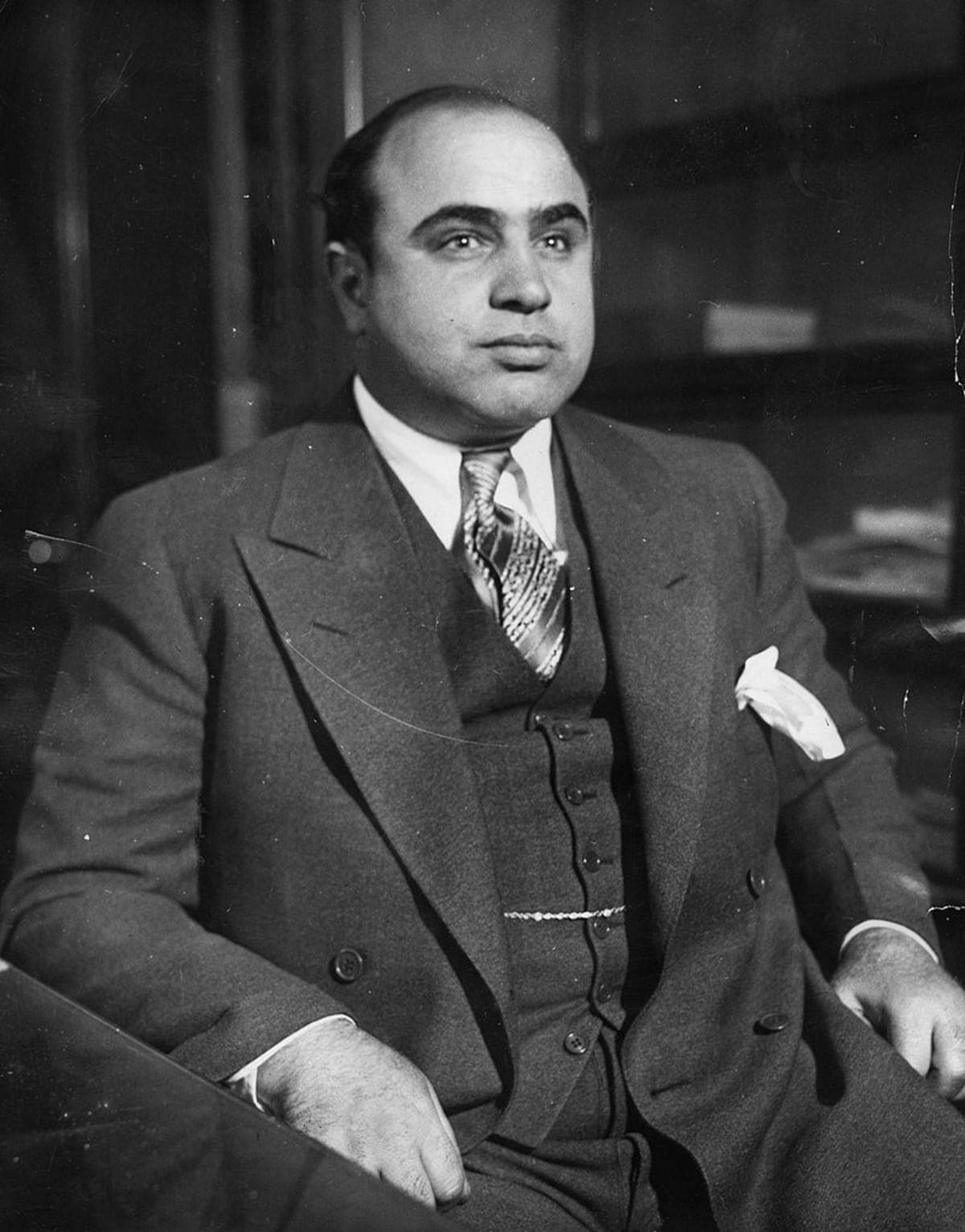On this day, in history October 17, 1931, Al Capone goes to prison

BROOKLYN, NEWYORK: On October 17, 1931, a pivotal event marked the end of an era in American crime history: infamous gangster Al Capone was sentenced to 11 years in prison for tax evasion and fined $80,000.
Capone's transformation from a thug in the tough streets of Brooklyn, New York, to becoming the most dreaded and influential crime boss of the 1920s and 1930s is a riveting saga of cleverness, ruthlessness, and eventual downfall.
From Brooklyn to the Windy City
Alphonse Gabriel Capone was born in Brooklyn, New York, in 1899 to Italian immigrants. His early life was marred by expulsion from school at the age of 14.
Joining a gang, he earned the infamous nickname "Scarface" after a vicious slashing across the cheek during a fight, setting the stage for the rise of his legendary gangster reputation.
By 1920, Capone had made his way to Chicago, where he swiftly became involved in the illicit activities of crime boss Johnny Torrio.
Their operations included highly profitable ventures such as alcohol smuggling, gambling, and prostitution during the era of Prohibition.

The Prohibition era (1920-1933) provided a lucrative environment for bootleggers and gangsters, with Capone at the forefront of the illicit trade. Millions flowed into his coffers from these underworld activities, establishing him as a formidable force in the criminal landscape.
By 1930, he had ascended to the top of the FBI's "Most Wanted" list but managed to avoid lengthy jail terms through bribery, witness intimidation, and multiple hideouts.
Capone's ruthless tactics, including eliminating rivals through gangland battles and notorious events like the Saint Valentine's Day Massacre in 1929, propelled his notoriety to a national level.
The untouchables and the tax evasion charges
Among Capone's adversaries was federal agent Elliot Ness, who led a team of officers aptly named "The Untouchables" because they could not be corrupted.
Ness and his team tirelessly dismantled Capone's bootlegging enterprises, and it was tax evasion charges that eventually led to the gangster's downfall. In 1931, Capone was convicted and sentenced to serve 11 years in prison.
A notorious figure behind bars
Capone commenced his sentence at the US Penitentiary in Atlanta. However, facing accusations of manipulating the system and receiving preferential treatment, he was later moved to the maximum-security Alcatraz Island prison in California's San Francisco Bay.
In 1939, he was released for good behavior, with his last year of incarceration spent in a hospital while battling syphilis.
A life in decline
Plagued by health issues for the rest of his life, Al Capone passed away in 1947 at the age of 48 at his residence on Palm Island, Florida.
His life's trajectory serves as a stark reminder of the consequences that can occur even to the most powerful and ruthless figures in the world of organized crime.
The legacy of Al Capone endures as a significant chapter in the annals of American criminal history, portraying the rise and fall of a crime lord who once reigned as the kingpin of Chicago's underworld.
His notoriety and the ultimate outcome of his life continue to intrigue, serving as a testament to the enduring power of the law against criminal empires.










